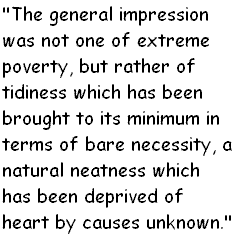Eric Frank Russell's "The Rhythm of the Rats" (short story, fantasy): Is the wizard turning children into rats?

It's the story of a haunted village, narrated from an adult's memory of an experience when he was 9, & generally with a sad mood. Very different from every other Russell story I've read, but of a kind that makes authors great.
For Indian readers: Part of a character is borrowed from the legends of Lord Krishna. And for Ganapathi worshipers, there are well-loved rats here - but loved for a different reason.
A few months back, I'd posted on may be dozen stories of Russell, including some novels. This post is the first of a batch of another half dozen.
Story summary.
Sole survivor of a plane crash is a 9 year old boy; he's narrating the story as an adult.There is no one around the scene of crash, though there are ruins of "Giant Ghormandel's castle" nearby. A little way ahead is the unnamed & haunted village of 60 houses where he will get help & find shelter during night in the home of "Let him be called Hansi because that was not his name". Story is mostly about the description of sad mood in the village that helps build anticipation, then a shorter part dealing with his experiences at night, & finally a small closure where we get rest of the details.
While the narrator refuses to tell the "nationality" of the village, we are told it's not an English speaking one, & one of the character uses the word "kinderhaus" during normal conversation. Does that mean somewhere in German speaking regions?
Here is the story of its hauntedness. Long ago, the wife of Ghormandel, lord of the now ruined castle, "used her evil arts" to kill him. The haunted village's "reckless forefathers ... trapped her by trickery & burned her for the foul old witch she was."
"And then they hunted her son, her only child, who was half-wizard, half-witch, but he escaped. Hiding in a place afar, he developed his dark talents & bid his time for vengeance... he came back to us... & took away our children" by charming them away. He "changes them? ... We cannot say for certain. We suspect it. We fear it... Children have gone, fix-eyed, with outreaching hands, like blind ones feeling their way - and rats have come back, tame, playful, wanting food and mother-love." "There is no peril by day... But always he is ready by night, ready to take a child - & give us back another rat!"
Things narrator had experienced during the night. Gun-totting men patrolling the village. Lots of rats - both gunmen & a woman feeding them lovingly. And finally the charm that nearly captured the narrator.
Indian readers will find this charming scene straight out of mythology books, & immortalized in countless paintings, songs, folk & temple performances, ...: Lord Krishna enchanting everyone within reach with his lovely & irresistible flute play. Only, the player in this story is a villain rather than a god.
By the end of the story, I didn't know where my sympathies lay. I mean, I could sympathize with villagers' predicament, but I just could not see the charmer as villain. I mean - you burn someone's mother, have been hunting him to kill him ever since, & wonder why he wants revenge!!
Fact sheet.
First published: Weird Tales, July 1950.Rating: A
Related: All stories of Eric Frank Russell.

1 comments:
I love this story!
Post a Comment